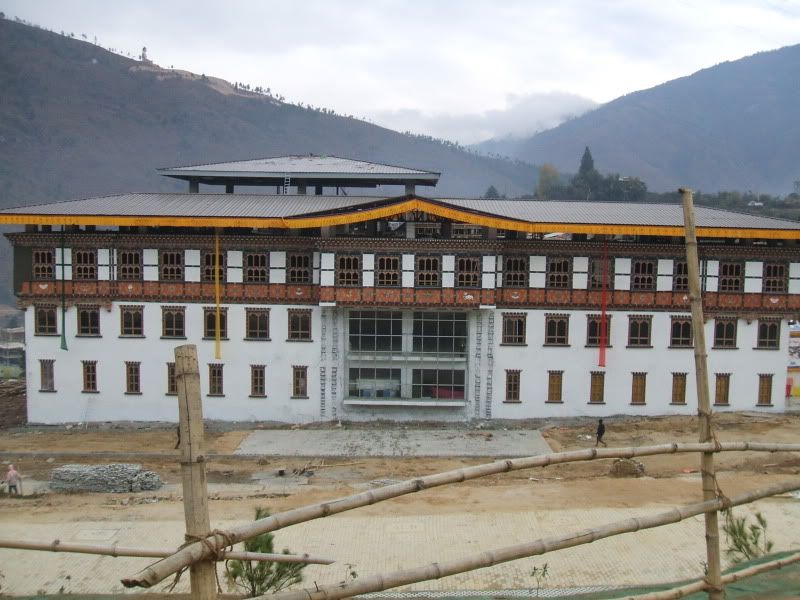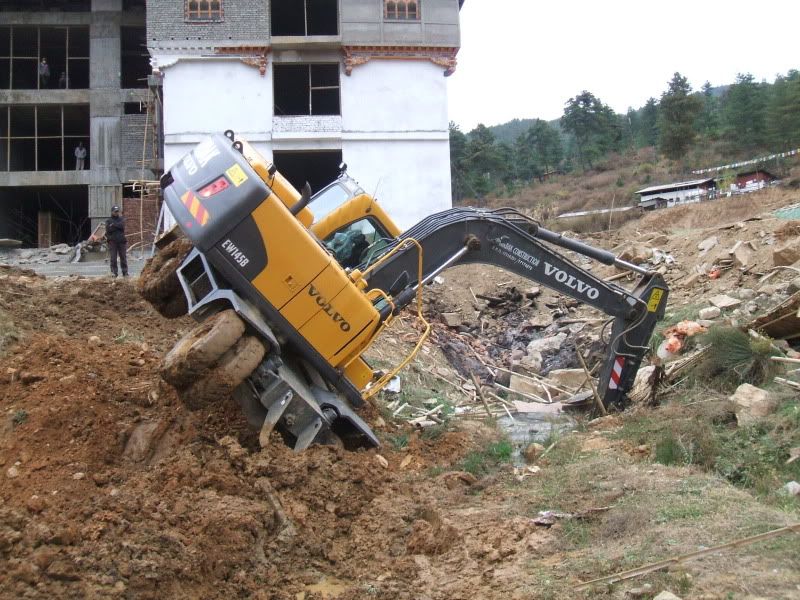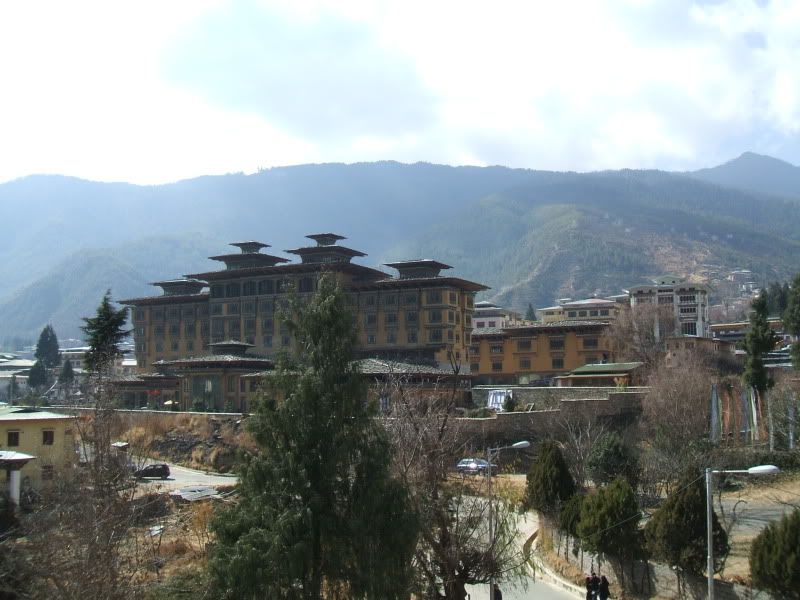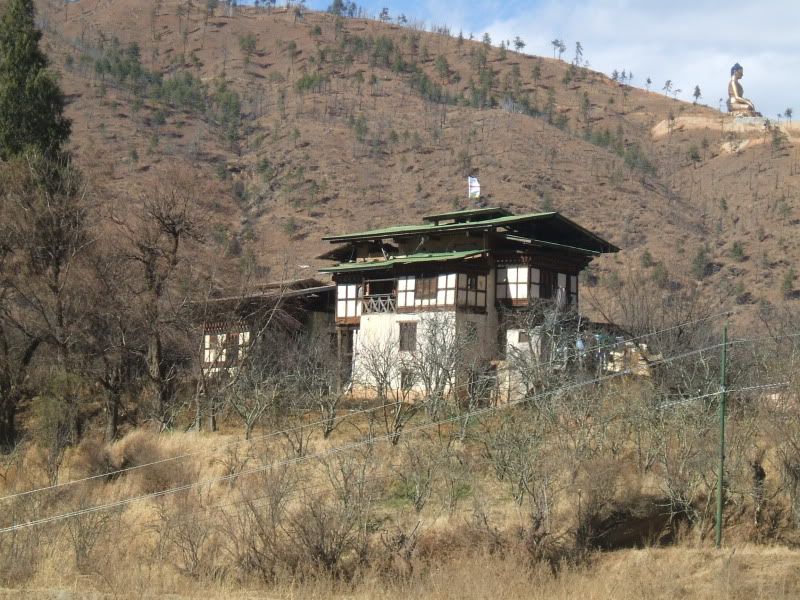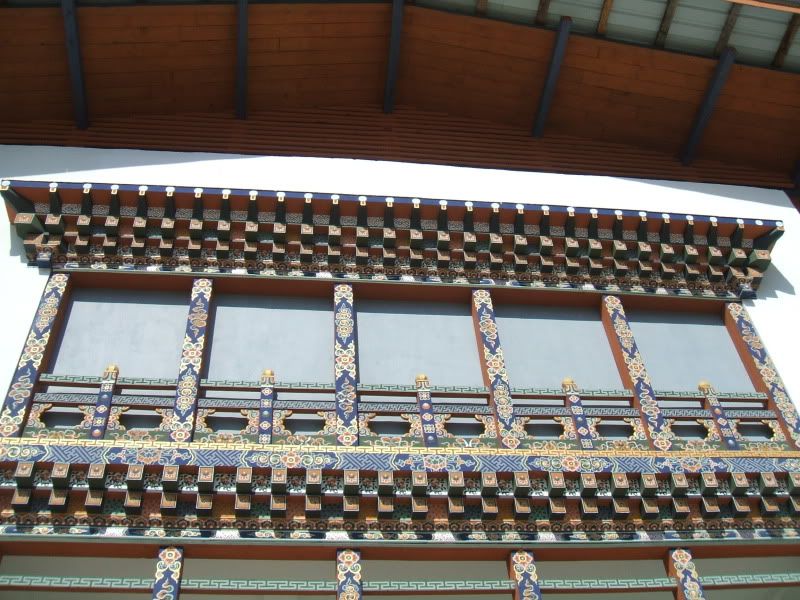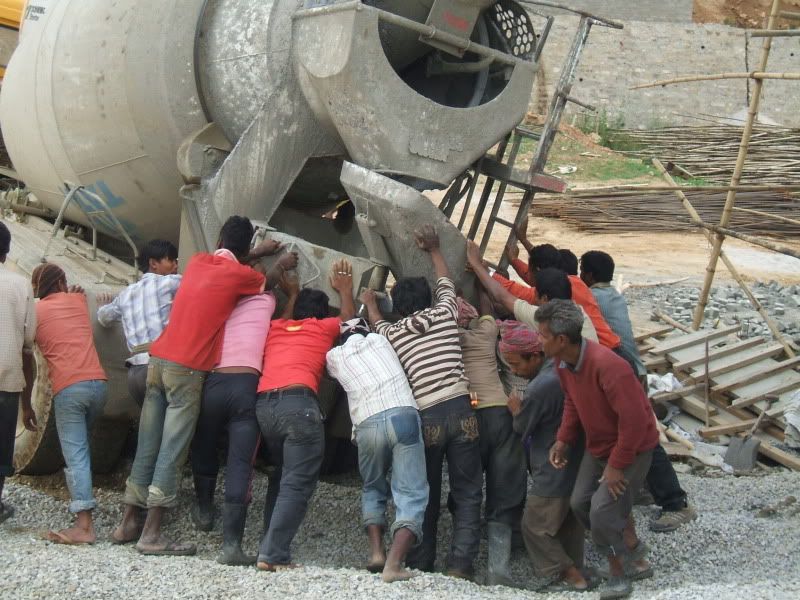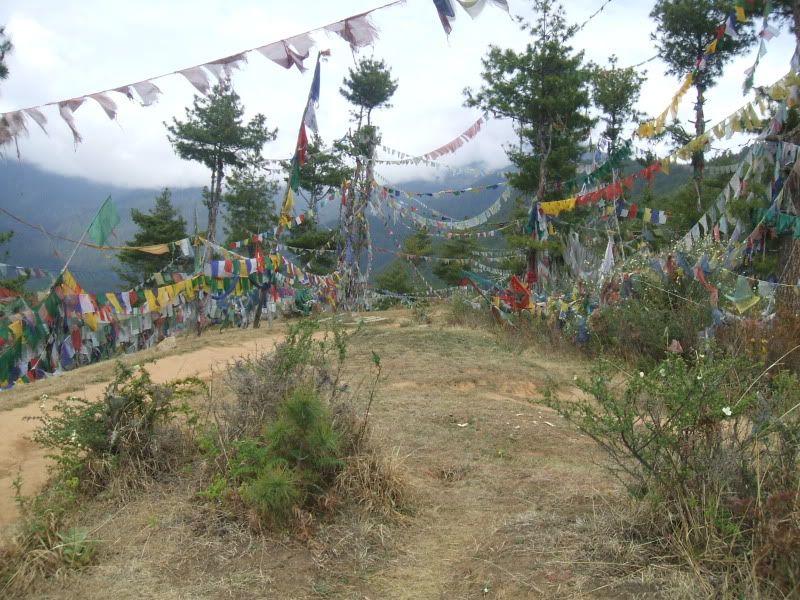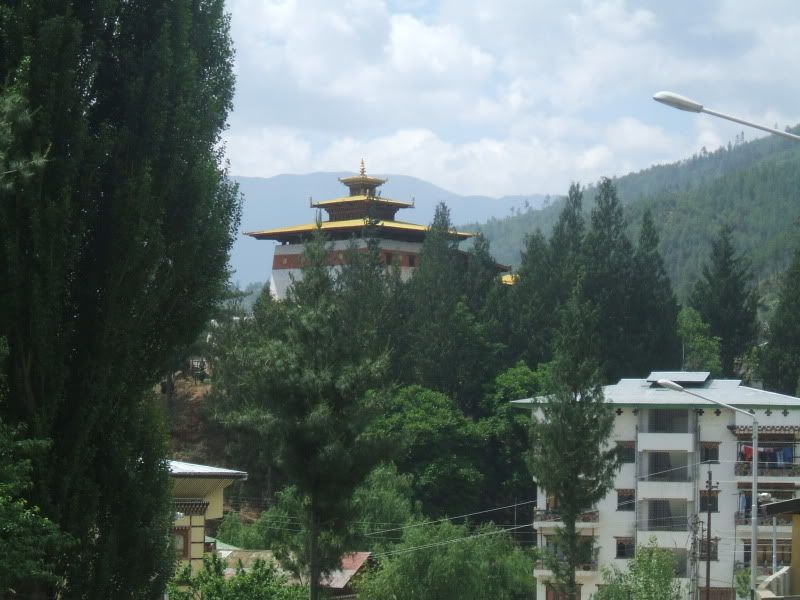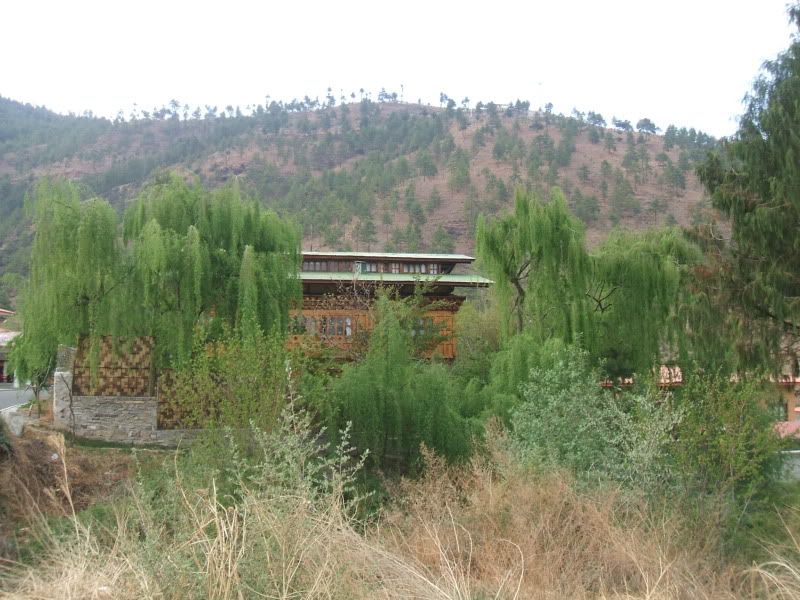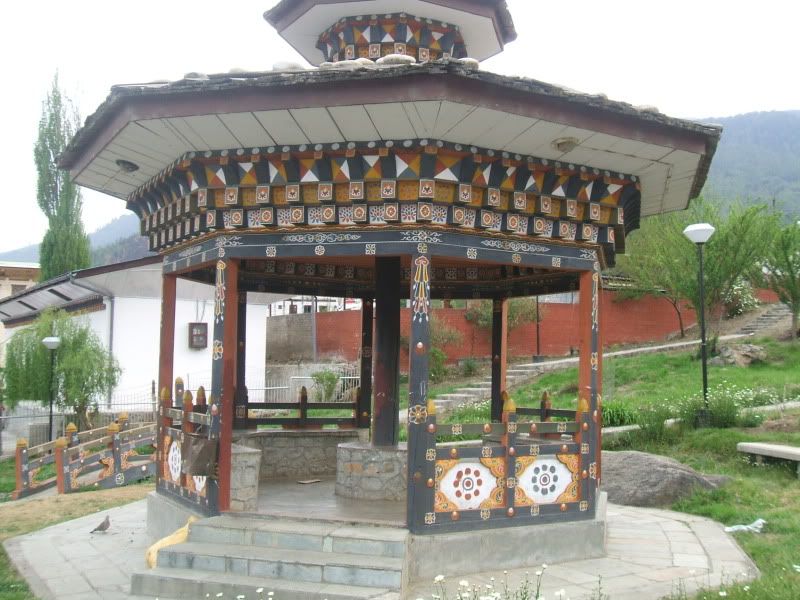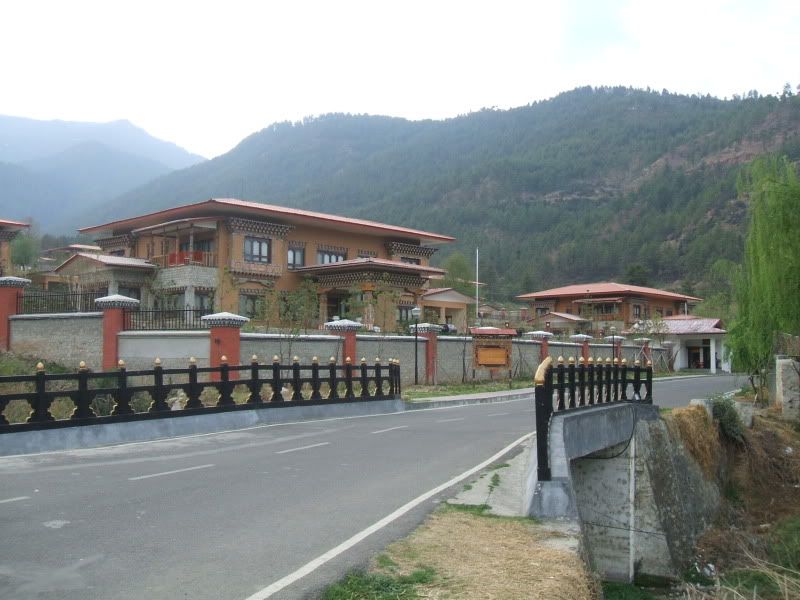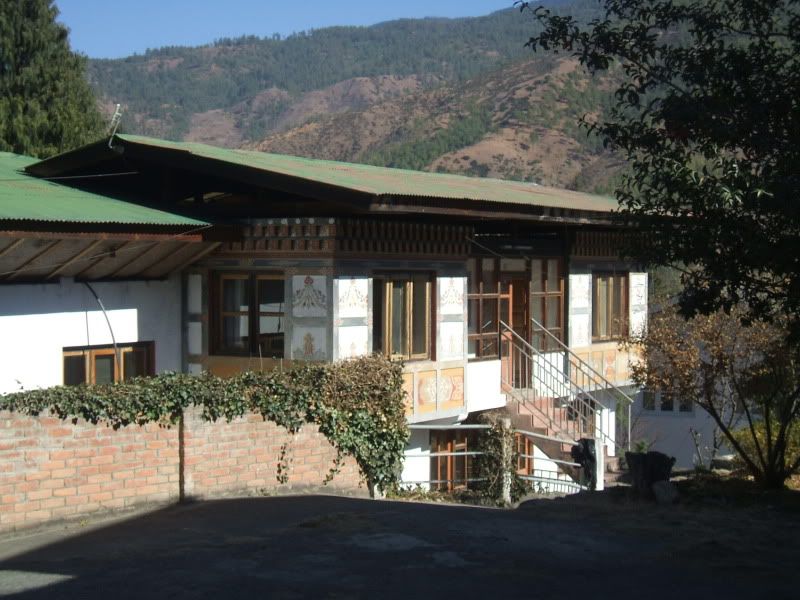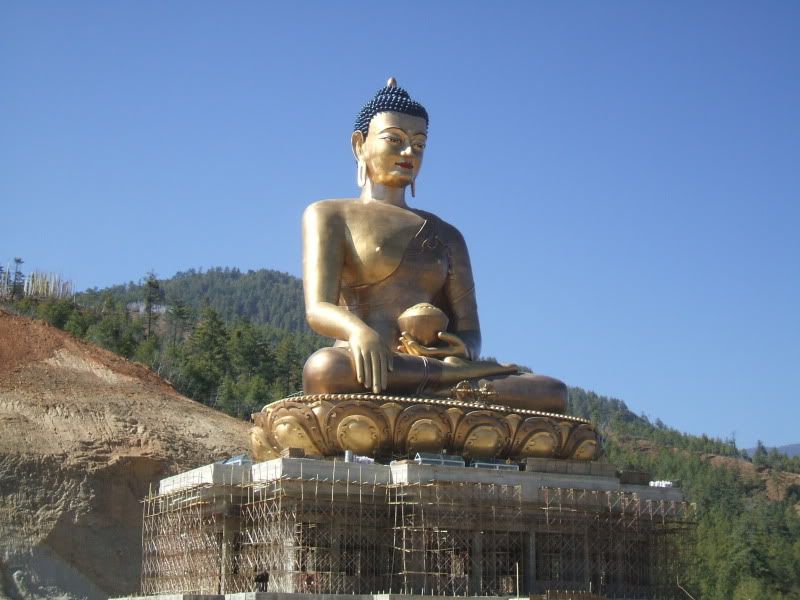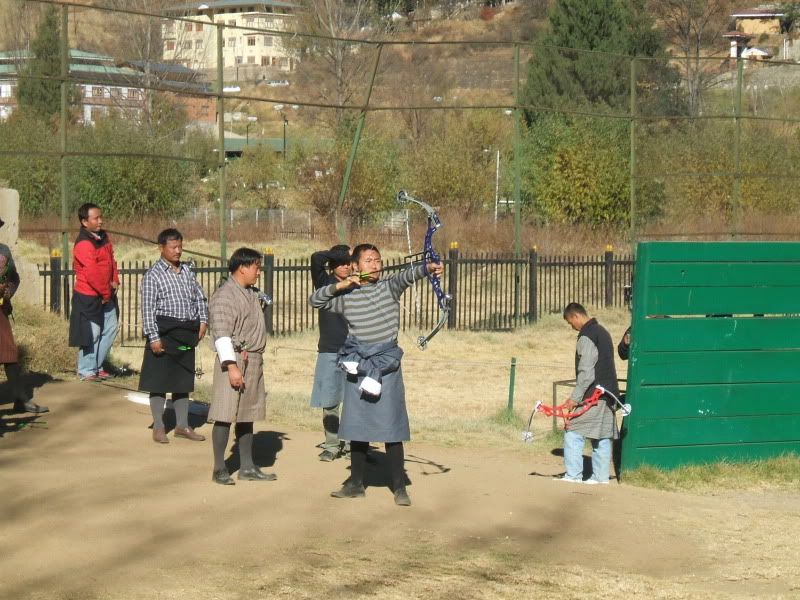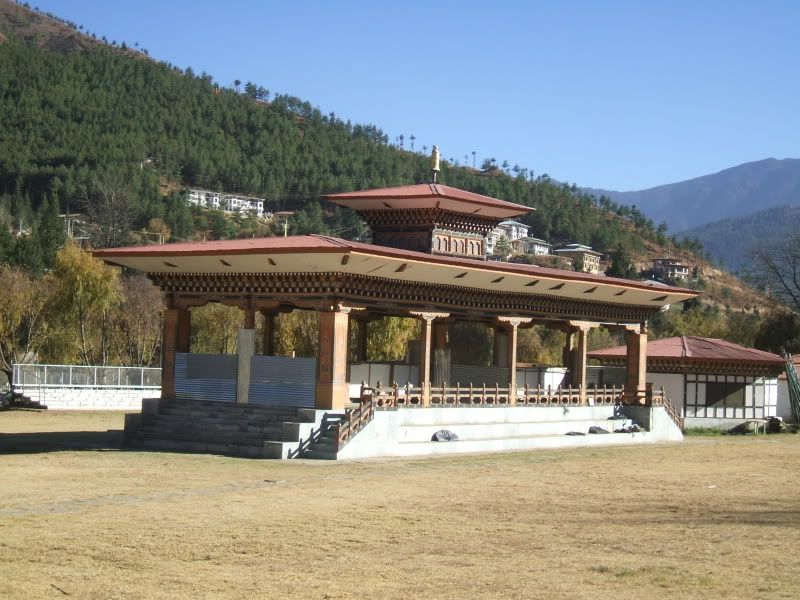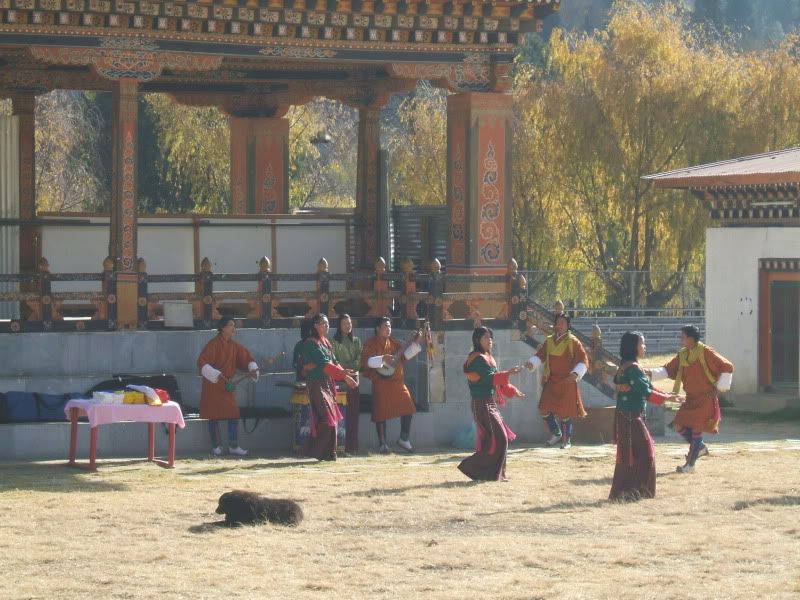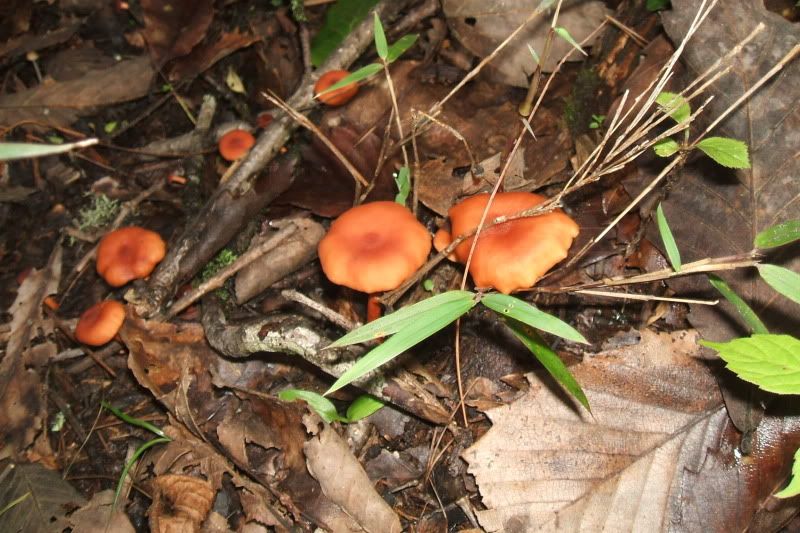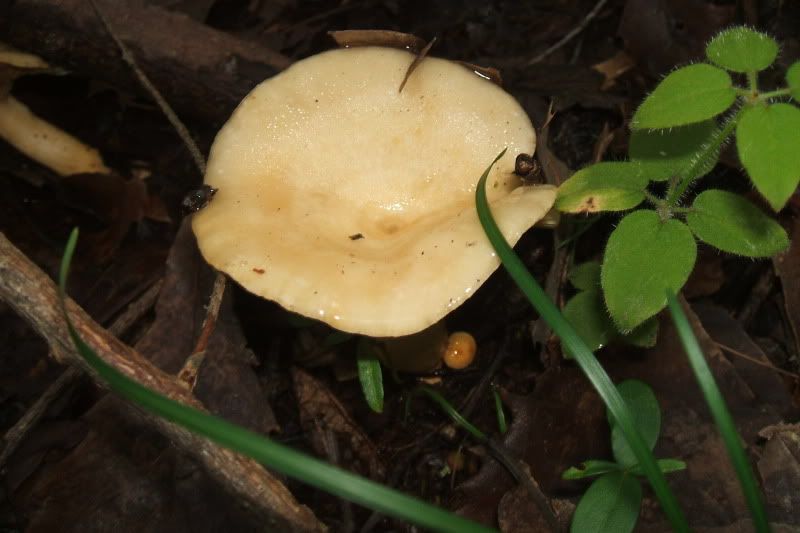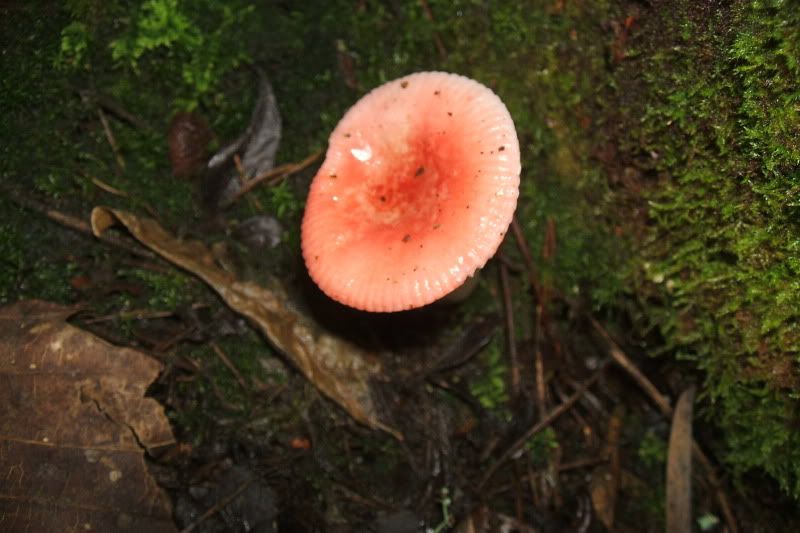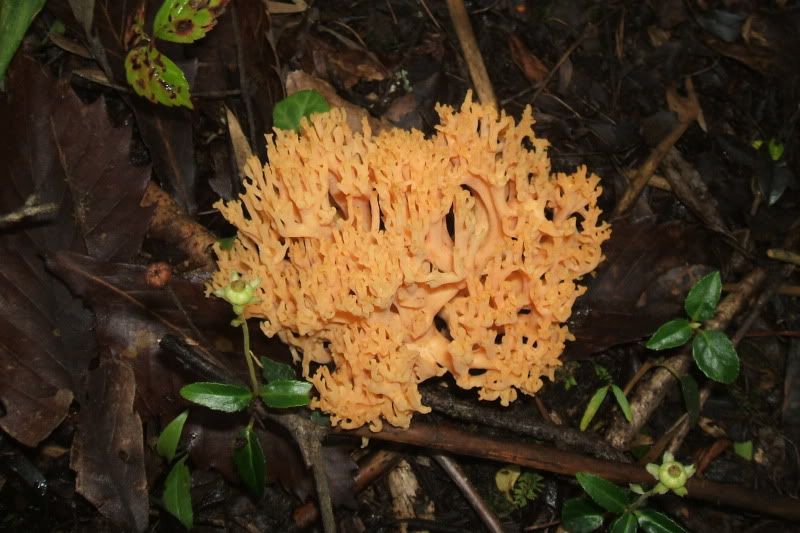Early 2010 I travelled to India as a
volunteer for an Australian charity.
http://www.40k.com.au.
I was project managing the construction
of a new home and school for severely underprivileged kids. (Pic below...the hostel is named
"The Banyan"). We finished it at the end of 2010 and donated the building to an Indian charity,
http://www.lovedalefoundation.org, and I still try to visit the kids
monthly.
The Banyan was built from mud bricks which we
made on site and sun-cured, from the soil excavated for the basement.
70,000 of them! It's a totally ecologically sound building...minimal
glazing to allow breezes in the hot Indian summers, solar hot water,
solar electricity, rainwater capture, aligned on Vaastu Shastra
principles
(Indian Feng Shui).
And my favourite feature, huge grates at the
entrance to allow rain into the basement garden that sits between 2
classrooms. Lots of fun in the Monsoon season!
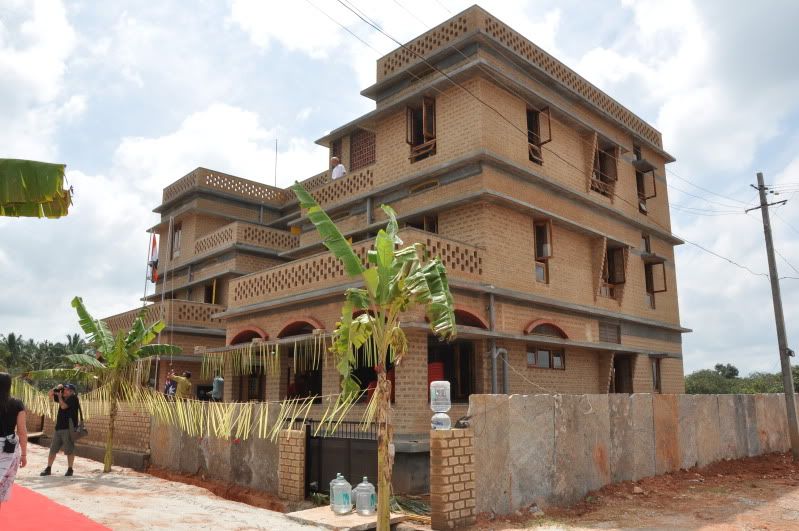
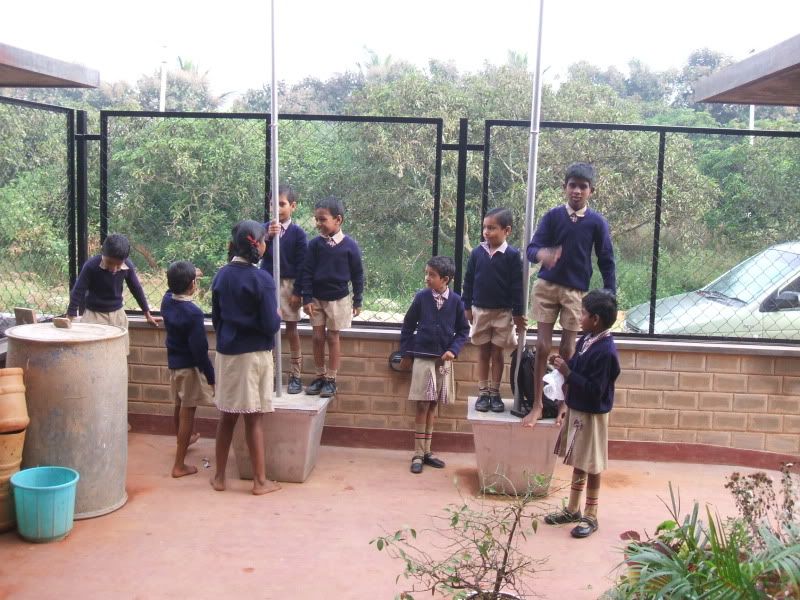
Through
that work, I met the head of a large property developing company who had
started this project in partnership with the Bhutanese government,
building the nation's first IT Park. They were having some problems and delays in
this difficult-to-work-in area, and he asked me if I could try and help move things
along. Of course, I jumped at the chance.
We have about 120
Indian workers on site, mainly masons, carpenters and general labourers.
It's very difficult to get local workers in a country whose entire
population is around 680,000. But the local stonemasons and traditional
painters are highly skilled artisans.

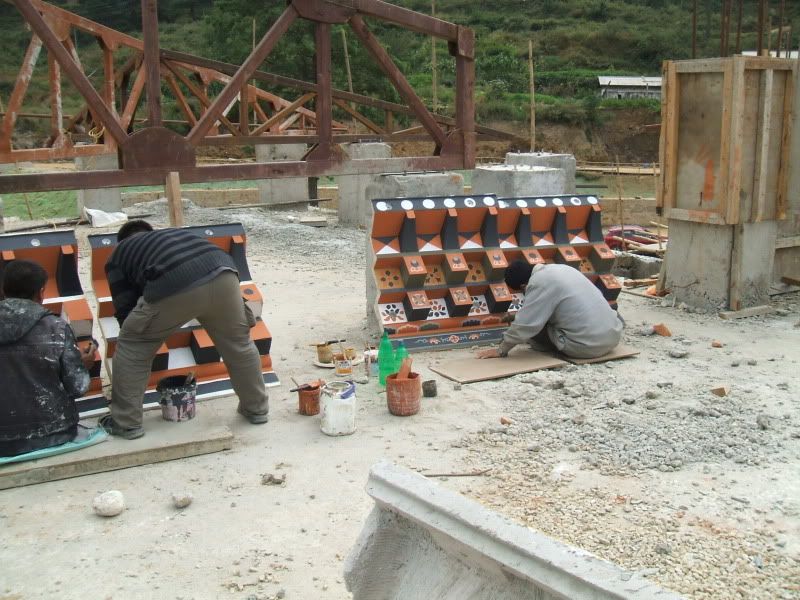
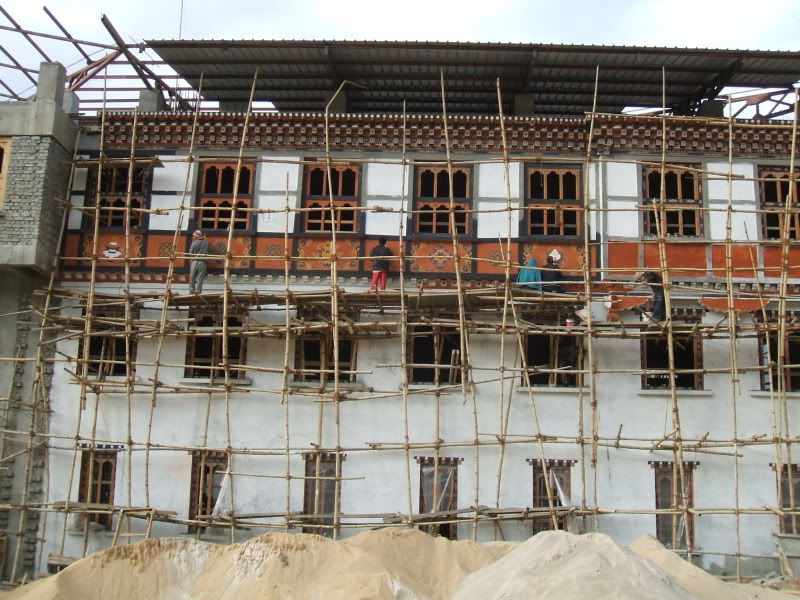
It
was only several weeks into the job that I saw the budget for
landscaping and the difficulties of getting it done locally, so grabbed
the opportunity myself. I left corporate management in Australia many
years ago to become a horticulturist, turf manager and landscape
designer, and ran my own company, so this project is a perfect blend of
my business/horticultural experience. And an incredible life experience!
Such a fascinating country, and a wonderful time to be here, just as
it's carefully opening its boundaries to the rest of the world.

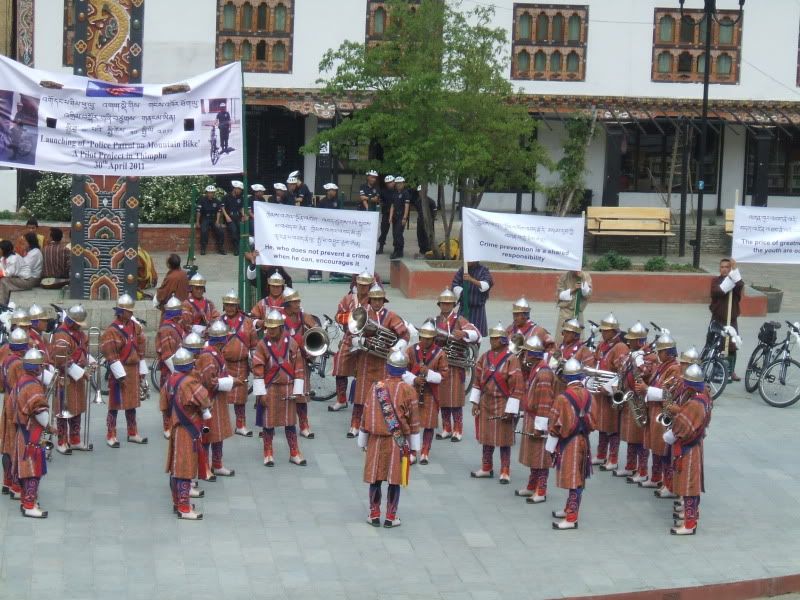
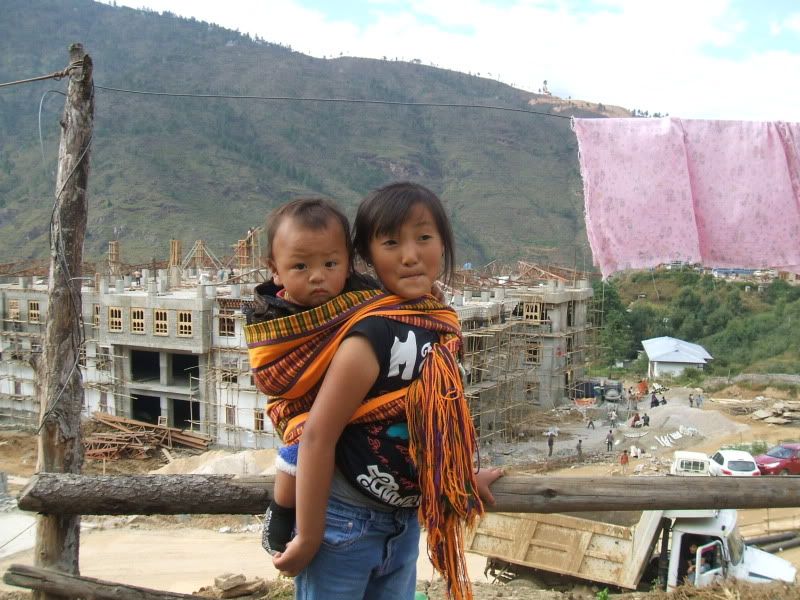
TV
was only introduced here in 1999, it is illegal to smoke, to use plastic
bags, or to fish in the King's rivers. By law, 65% of the country must
retain tree cover for perpetuity. I was initially very worried about
whether this project was going to do good or be harmful to Bhutan's
future, but everyone from the King to the most remote villager wants it.

